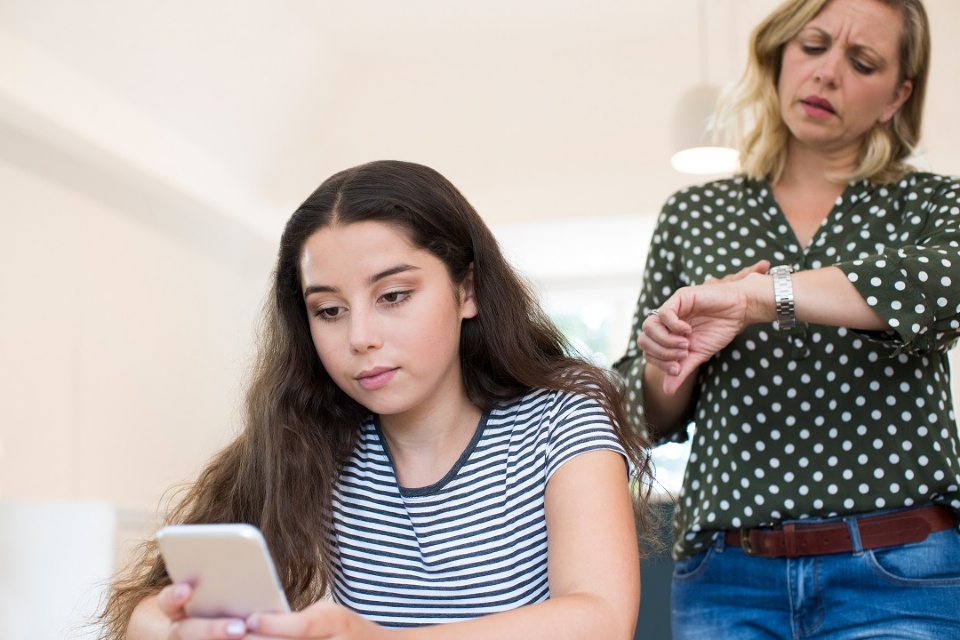Parents and their
teens never do seem to see eye to eye on responsibilities. In fact, both
parties seem to cringe before they decide to get into a conversation with one
another after difficult situations arise and need to be addressed to find peace
in a home. Some parents walk into a discussion already being on the defense. Some
parents start by shouting at their teen because they are unhappy about the task
or chore that wasn’t done. Shouting or starting a conversation with an angry
tone is not going to get anything positive out of your teen. Your teen may
already be used to the shouting when something isn’t done and can in fact,
ignore your efforts as you ‘try’ communicating with them. Some teens who are
too involved with their own priorities will fend off your attempts to parent
them into doing things.
How can parents
get their teen to contribute more in the home with their chores and
responsibilities? Some parents do not have the authority or respect that they
demand from their teen. Often, their troubled teen will ignore their sheepish
attempts to get them to do chores. Gone are the days when your little helper in
the home wanted to help you unload the dishwasher or sweep up the kitchen.
Today, parenting
can be done with resources or professional advice. Books and information online
can also be of service for a parent who feels that they are not quite getting
messages across to their teen. Shannon Walsh, Ps. Ed, Psychoeducator, is currently
working at McGill University as a Wellness Advisor and is an expert working
with teens and adults. She also spent 15 years working as a parent and teen
coach at the Study in Montreal. She also continues to work as an educational
consultant.
She provides
insight to some tools that have helped her both personally and professionally.
She recommends reading Dr. Shefali’s ‘The Conscious Parent’. “Having studied with
Dr. Shefali and participated in her online conscious parenting I and II, I
continue to apply the principles she outlines in my work and as a parent,” says
Walsh. “She encourages us to slow down and hold space when our kids push back
or act out. This slowing down allows us to diffuse the situation so that more
productive conversation can occur. When we rush to react and focus on regaining
control, we often perpetuate the pushing back that teens do. Parental anxiety
is at its peak during adolescence. We worry about the impact of risk taking,
rule breaking and acting out. Fear does not keep kids safe. Connection does.”
Having
conversations with your teen will establish a fruitful and long-term healthy
relationship. Discussing outcomes and solutions will help establish boundaries
that will help both parties ease through adolescence together with much less
anxiety, as it is a trying time for both sides. Parents find it challenging to
parent their teen and teens believe their parents don’t understand the challenges
they are facing. Open discussions help both sides respect each other.

 In The Latest Issue:Latest Issue:
In The Latest Issue:Latest Issue:
- A Bittersweet Farewell
- The new Laval Aquatic Co...
- The End of an Era:
Articles
Calendar
Virtual- ANNUAL TEACHER APPRECIATION CONTEST
- APPUI LAVAL
- ARTS & CULTURE
- CAMPS
- CAR GUIDE
- CCIL
- CENTENNIAL ACADEMY
- CHARITY FUNDRAISING
- CITYTV
- COSMODÔME
- COMMUNITY CONNECTIONS
- COVER STORY
- DINA DIMITRATOS
- ÉCOLE SUPÉRIEURE DE BALLET DU QUÉBEC
- EDITORIALS
- ÉDUCALOI
- EDUCATION
- EMPLOYMENT & ENTREPRENEURSHIP
- FÊTE DE LA FAMILLE
- FÊTE DU QUARTIER SAINT-BRUNO
- FAMILIES
- FESTIVAL LAVAL LAUGHS
- FÊTE DE QUARTIER VAL-DES-BRISES
- FINANCES
- GLI CUMBARE
- GROUPE RENO-EXPERT
- HEALTH & WELL-BEING
- 30 MINUTE HIT
- ANXIETY
- CHILDREN`S HEALTH & WELLNESS
- CLOSE AID
- DENTAL WELLNESS
- EXTREME EVOLUTION SPORTS CENTRE
- FONDATION CITÉ DE LA SANTÉ
- GENERAL
- HEARING HEALTH
- MESSAGES FROM THE HEALTH AGENCY OF CANADA
- MENTAL HEALTH
- SEXUALITY
- SOCIAL INTEGRATION
- SPECIAL NEEDS
- TEENS
- THE NUTRITION CORNER
- THE NUTRITION CORNER - RECIPES
- VACATION DESTINATION
- WOMEN'S FITNESS
- WOMEN'S HEALTH
- HILTON MONTREAL/LAVAL
- HOME & GARDEN
- INTERNATIONAL WOMEN'S DAY
- JAGUAR LAVAL
- LAVAL À VÉLO
- LAVAL FAMILIES TV SHOW
- LAVAL FAMILIES MAGAZINE CARES
- LAVAL URBAN IN NATURE
- LE PARCOURS DES HÉROS
- LES PETITS GOURMETS DANS MA COUR
- LEON'S FURNITURE
- LEONARDO DA VINCI CENTRE
- LFM PREMIERES
- LIFE BALANCE
- M.P. PROFILE
- MISS EDGAR'S AND MISS CRAMP'S SCHOOL
- MISSING CHILDREN'S NETWORK
- NETFOLIE
- NORTH STAR ACADEMY LAVAL
- OUTFRONT MEDIA
- PASSION SOCCER
- PARC DE LA RIVIÈRE-DES-MILLE-ÎLES
- PÂTISSERIE ST-MARTIN
- PIZZERIA LÌOLÀ
- PLACE BELL
- PORTRAITS OF YOUR MNA'S
- ROCKET DE LAVAL
- SACRED HEART SCHOOL
- SCOTIA BANK
- SHERATON LAVAL HOTEL
- SOCIÉTÉ ALZHEIMER LAVAL
- STATION 55
- STL
- SUBARU DE LAVAL
- TECHNOLOGY
- TEDXLAVAL
- TODAY`S LAURENTIANS AND LANAUDIÈRE
- TODAY`S LAVAL
- WARNER MUSIC
- THIS ISSUE
- MOST RECENT
Magazine
Better Communication with Your Teen
Articles ~e 105,7 Rythme FM 4 chemins Annual Teacher Appreciation Contest Appui Laval Arts & Culture Ballet Eddy Toussaint Camps THIS ISSUE MORE...
CONTESTS Enter our contests
CONTESTS Enter our contests
CALENDAR
Events & Activities
COMMUNITY Posts Events
PUBLICATIONS Our Magazine Family Resource Directory
LFM BUSINESS NETWORK Learn more
COUPONS Click to save!
COMMUNITY Posts Events
PUBLICATIONS Our Magazine Family Resource Directory
LFM BUSINESS NETWORK Learn more
COUPONS Click to save!
SUBSCRIPTIONS
Subscribe to the magazine
Un-Subscribe
E-NEWSLETTER Subscribe to our E-newsletter Un-Subscribe
WRITE FOR US Guidelines & Submissions
POLLS Vote today!
E-NEWSLETTER Subscribe to our E-newsletter Un-Subscribe
WRITE FOR US Guidelines & Submissions
POLLS Vote today!
ADVERTISERS
How to & Media guide
Pay your LFM invoice
SUGGESTIONS Reader's Survey Suggest a Listing
LFM About Us Our Mission Giving Back Contact Us
SUGGESTIONS Reader's Survey Suggest a Listing
LFM About Us Our Mission Giving Back Contact Us
 PICK-UP LOCATIONS
Get a copy of LFM!
PICK-UP LOCATIONS
Get a copy of LFM!
TERMS & CONDITIONS Privacy | Terms
ISSN (ONLINE) 2291-1677
ISSN (PRINT) 2291-1677
Website by ZENxDESIGN



 BY:
BY: 
Tweet
Share